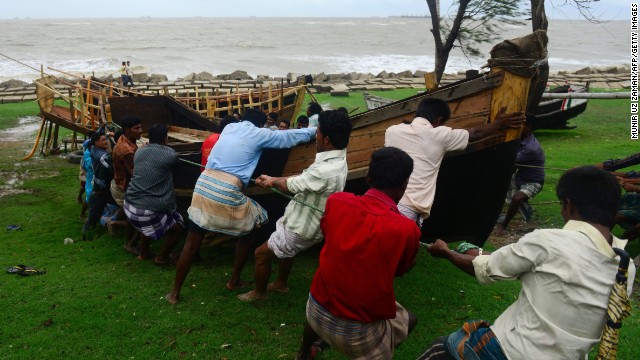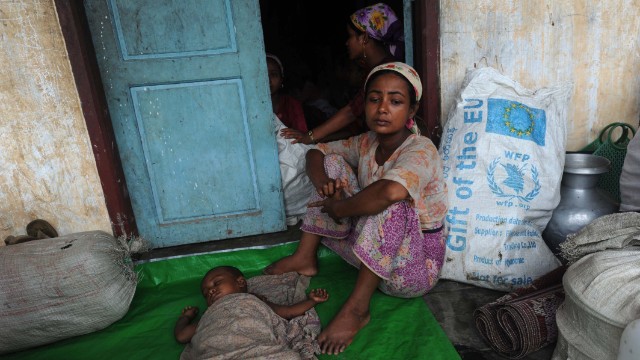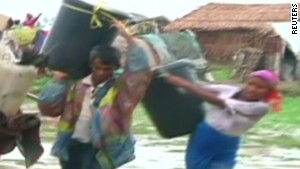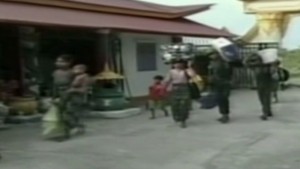Cyclone Mahasen pulls its punch

Tropical Cyclone Mahasen makes landfall
Still, at least 12 people were killed, thousands of thatched houses were damaged and trees uprooted, the state news agency said.
"The situation is turning
normal and the people have started returning home after some 200,000
people took overnight refuge at cyclone shelters at Barisal Division,"
divisional commissioner of Barisal Mohammad Nurul Amin told Bangladesh
Sangbad Sangstha (BSS).
"The damage was not that
much what we feared, and people who took shelters have already started
moving to their houses as the weather is becoming almost normal," he
said.
Bangladeshi authorities
had relocated hundreds of thousands of people in vulnerable areas to
safer ground ahead of the storm's arrival.
 Photos: Tropical Cyclone Mahasen
Photos: Tropical Cyclone Mahasen
 Cyclone Mahasen displaces thousands
Cyclone Mahasen displaces thousands
 CNN Explains: Tropical cyclones
CNN Explains: Tropical cyclones
The storm's strongest gusts reached 90 kph (56 mph), weaker than a hurricane, BSS said.
Authorities had suspended
port activities at Chittagong, a major transport and commercial hub,
and canceled all flights to and from the city's airport.
The United Nations Office
for the Coordination of Humanitarian Affairs had warned that Mahasen
could put millions of people in the surrounding region at risk.
On Wednesday, aid agencies and local authorities scrambled to prepare residents and to put emergency supplies in position.
Bangladeshi authorities
relocated at least half a million people from the coastal districts of
southeastern Bangladesh, the top administrative officer of Chittagong
Division said.
Authorities prepared thousands of buildings as cyclone shelters.
The OCHA put the number of people ordered to relocate by the Bangladeshi government at 1 million nationwide.
There was reason for the
caution: In 1970, Cyclone Bhola killed some 400,000 people, according
to the OCHA. Cyclone Sidr killed nearly 4,000 people in 2007, and
Cyclone Aila killed about 200 people in 2009.
A vulnerable group in Myanmar
Relocation efforts have also proved challenging in Myanmar's western state of Rakhine, which borders Bangladesh.
On Rakhine's coast,
Myanmar authorities and relief agencies worked to relocate tens of
thousands of Muslims who had been living in makeshift camps in low-lying
areas since last year, when their homes were destroyed in sectarian
violence.
Most of them are Rohingya, a stateless Muslim minority who suffered during decades of military rule in Myanmar.
Sectarian violence
erupted last year in Rakhine between Buddhists and Muslims, resulting in
the deaths of scores of people, most of them Rohingya. Since then, more
than 100,000 Muslims have been forced to live in camps.
In a report last month,
the advocacy group Human Rights Watch accused Myanmar authorities of
involvement in a Buddhist campaign of "ethnic cleansing" against the
Rohingya in Rakhine. The Myanmar government dismissed the report as
"one-sided."
The efforts to relocate
some of the displaced Rohingya living in the camps appear to have been
hindered by distrust of the security forces involved.
On Monday night, a boat
ferrying people from one camp in Rakhine to safer areas hit rocks and
capsized, the OCHA said, citing the government. Fifty-eight people were
missing and an unspecified number died, the agency said.
No comments:
Post a Comment